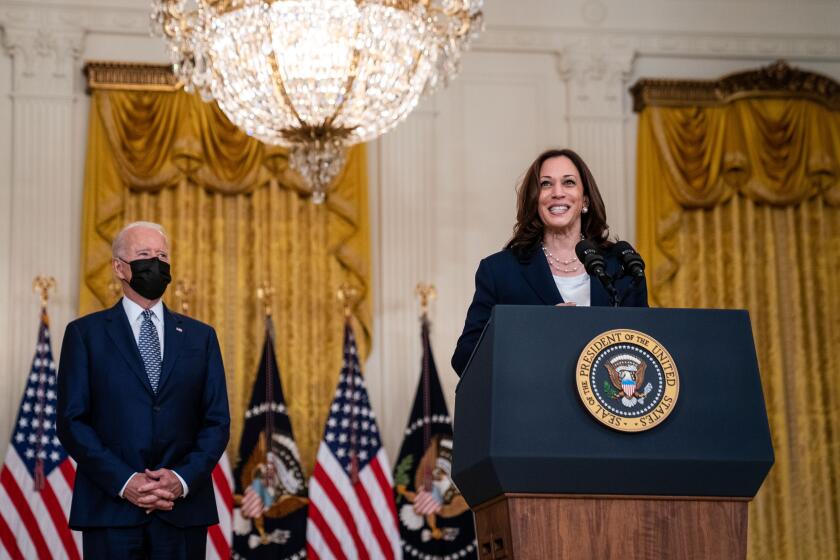SEC peeks under private equity rug, finds ‘remarkable’ corruption
U.S. private equity firms, which today control a record $3.5 trillion in assets, fought ferociously against a Dodd-Frank reform provision requiring that they register with and submit to examinations by the Securities and Exchange Commission.
Now we know why.
In a report on the SEC’s findings after a preliminary round of examinations, agency official Andrew J. Bowden described what he called a “remarkable” level of lawbreaking and cheating among the 150 private equity advisory firms inspected so far. Bowden delivered his report directly to the lions in their den, speaking at a May 6 private equity conference.
“A private equity adviser is faced with temptations and conflicts with which most other advisers do not contend,” Bowden stated. “We have seen that these temptations and conflicts are real and significant.”
The most striking statistic: Half of all examinations uncovered “what we believe are violations of law or material weaknesses in controls.”
Bowden’s talk was briefly covered in the financial press, and has garnered useful analyses by the Roosevelt Institute’s Mike Konczal and by Yves Smith at her nakedcapitalism.com website.
It deserves wider exposure. As Smith writes, “In the years that I’ve been reading speeches from regulators, I’ve never seen anything remotely like Bowden’s talk.”
You might be tempted to think that this is all about canny financial operators ripping off rich individuals who should be able to look out for themselves. Think again. Among the big clients of private equity advisors are institutional investors such as pension funds, who are staking your money.
For example, California’s own CalPERS, the nation’s largest public pension fund, had more than $42 billion of exposure to private equity investments as of mid-2013. How have these investments done? Some have done OK, some not so OK. The big problem, as CalPERS acknowledges, is that “there are no generally accepted standards, practices, or policies for reporting private equity valuations.” In other words, no one can be quite sure what they’re worth.
Indeed, Bowden reported all sorts of suspect valuation maneuvers by private equity funds aimed at inflating their reported values. In one case, he said, an undisclosed change in valuation methodology allowed a fund to raise the internal rate of return it reported to investors in one quarter “from roughly 3.8% to more than 38%.”
Many of the advisors’ abuses involve saddling clients -- “limited partners” in private equity parlance -- or portfolio companies (these are the companies in which the private equity firms invest their clients’ money) with undisclosed or unexpected fees. The worse the private equity advisor is doing generally, the greater the incentives to squeeze their portfolio companies for revenue.
The SEC has found whole categories of “backdoor” fees that investors don’t expect -- charging for the services of “operating partners” ostensibly with special expertise, even though they’re really just employees of the private equity firm and should be paid out of its own income. Or paying related parties -- friends, families, business associates -- to “deliver services of questionable value.”
Despite this record, private equity types remain among our most arrogant and self-important plutocrats: Remember how back in 2010, Stephen Schwartzman of the giant private equity firm Blackstone compared the Obama admnistration’s efforts to raise taxes on such firms to “when Hitler invaded Poland in 1939”?
As Konczal reminds us, the private equity reform was placed in Dodd-Frank at the insistence of the AFL-CIO. It’s still being fought by House Republicans, who have introduced a bill to eviscerate the registration rule. Over at the Private Equity Growth Capital Council, the industry’s lobbying arm, they’re still fighting the last war, cautioning that “any new reporting requirements for investment firms and financial institutions should be more carefully calibrated so that burdens are proportionate to the size of the firm.”
It’s the old line about how “regulation is fine, but it should be sensible and ‘proportionate’.” The SEC’s Bowden has wisely moved to cut it off at the knees, by letting the private equity industry know that what the agency has learned about its behavior points to the need for more regulation, not less.
More to Read
Inside the business of entertainment
The Wide Shot brings you news, analysis and insights on everything from streaming wars to production — and what it all means for the future.
You may occasionally receive promotional content from the Los Angeles Times.







